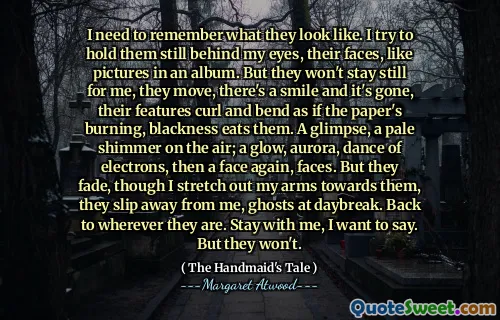I am not your justification for existence.
In "The Handmaid's Tale" by Margaret Atwood, the author explores themes of identity and autonomy, particularly in the context of women’s roles in a dystopian society. The quote, "I am not your justification for existence," encapsulates the struggle for individual purpose and the rejection of being defined by others. It reflects the desire for self-identity beyond societal roles, particularly in a world where women are often reduced to their reproductive functions.
This statement speaks to a broader critique of patriarchal systems that impose value and worth on individuals based on their utility to others. Atwood highlights the importance of women asserting their own identities and existence independent of the expectations and needs of men. The narrative ultimately challenges readers to contemplate the significance of self-ownership and the dangers of allowing one's identity to be dependent on others.






